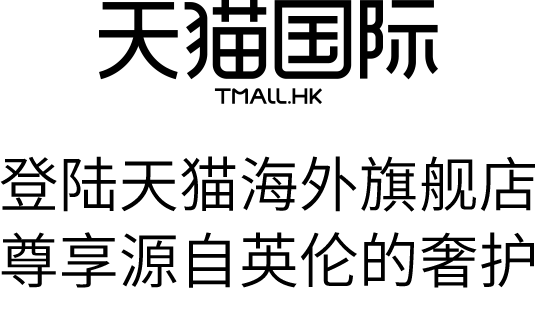In May, we shared the story of Joy, our founder who wrote of her eternal gratitude to NHS workers and all those who saved the life of her baby boy, Jax, who was born six weeks early.
Like thousands of people around the UK this year, Joy and Jax’s story could have been very different without the love, care and bravery that has made heroes of frontline workers everywhere.
We wish we could celebrate every individual who has performed an operation, administered medicine or held a hand in the fight against COVID-19, but there are just too many. The curve and colours of the rainbow grow bigger and brighter every day.
Instead, we have chosen to dedicate this month’s SHINE the LIGHT to somebody whose kind, caring and humble nature represents the love of every NHS staff member and key worker.
Meet Sheryl, ward manager at the Molly Lane Fox Unit, University College London Hospitals (UCLH), wife and mum.
In two days, everything changed
‘We were a brain tumour unit,’ Sheryl tells us. ‘In the middle of March, we were converted to a COVID unit with only two days notice. I had a lot of anxiety and worry for the 45 people on my team, who I had to notify and prepare for something we didn’t know much about. Everyone had their own concerns. My job was to make it all work.’
We ask Sheryl how you prepare personally for such an unknown, and how you manage a team through such trauma.
‘When you are a manager you cannot just think of yourself. You have to think about the team — especially if you are the one who has to lead and show everyone how to treat a COVID patient. It was a new thing for everybody. Working as a team was really the only option.’
On top of Sheryl’s own team, patients and their relatives would approach her for guidance. With no visitors allowed, the phone didn’t stop ringing. Often, there were no definite answers.
‘Some patients were deteriorating rapidly. They could be okay in the morning but end up in intensive care by lunch. Oxygen saturation would just drop out of nowhere — there were lots of life or death situations. That was definitely the most difficult part of it all.’
As ward manager, she did her best to follow government guidelines, but Sheryl had to make a lot of on-the-spot decisions. ‘There were lots of questions and not many answers.’
A serious conversation at home
Sheryl is a mum of two girls and a boy.
‘There was not a lot of clarity on how to manage work and family. At the end of the day, we had to be there to treat patients. UCLH did their absolute best to prepare us in such a short amount of time.’
So, what was life like at home for Sheryl?
‘My husband works in intensive care on the front line, and we have no extended family in the UK. So, we had to swap schedules and look after the kids while the other one was working.’
Even something as simple as showering has become complicated.
‘I make sure to shower at the hospital before I come home. Sometimes it is not possible, so I call my husband and he keeps the kids in a separate room until I pass through and go straight for a shower.’
Sheryl needed to be strict about contact at home.
‘I had to have a serious conversation with my kids and tell them if Mummy comes home, you can’t just run and hug me. For the first two weeks of working in the unit, I didn’t let them kiss me either. They were very understanding.’
Overwhelming support
Opening Sheryl’s ward to COVID patients and treating them went smoothly and slightly better than expected.
‘We had lots of support from the hospital. One of the departments actually raised money to provide breakfasts for the nurses in the COVID units. It’s been overwhelming. We feel very valued and appreciated. Infection control comes in every morning to check in on us and offer guidance. The support has been coming in on all levels.’
Watching the news in the ward’s sitting room, Sheryl could sense how frightening the virus was for people stuck at home.
‘Working at a hospital during this time actually sometimes made me feel better because I could look the enemy in the face and know exactly what was going on and what could be done.’
Sheryl’s ward has lost one life. ‘We did everything in our power for that patient. She was given 24 hours to live when she was admitted, and she passed away two weeks after. It was still very difficult.’
Optimism and positivity
Sheryl has built a strong team spirit at work. She says her aim has been to create a space for her ‘brilliant team’, where anyone can voice their concern and share anxieties. They are always checking on one another and supporting those who are struggling.
'It will all work out in the end. This can’t go on forever.'
This has become Sheryl’s mantra. It must also be the hope of every human around the world battling the virus.
‘We are facing the same problem and the only thing that we can do is stay optimistic. I always try to stay positive.’
Is it right to say Sheryl's team — and perhaps other NHS teams around the country — have become stronger because of this crisis?
‘I think so. We are all working on rotation so that staff from different wards can experience working with COVID patients. We first thought it would be difficult to get people to rotate, but at the end of the three-week rotation, my staff were reluctant to be moved!’
For ten weeks, the country came together to Clap for Carers on a Thursday evening. How did it make Sheryl feel?
‘The first few times it made me so emotional I cried. I was sharing videos with my staff working at the hospital of everyone clapping, and my children dancing in front of our house so that they didn’t feel left out. Others were sharing videos, too. It was very overwhelming. It was amazing to feel so appreciated as a front liner. It felt like everyone really understood the value of the work we do.’
Sheryl’s personal battle
Sheryl contracted COVID-19 in April, even following rigorous safety procedures. She had headaches and body pains, lost her sense of taste and smell, and at one point couldn’t walk properly.
‘Being ill in that situation, I truly realised how short our lives are. I had to think about my kids, my husband, who would take care of them if I am gone, and how they would struggle.’
'I will take from all this how to always truly value your family and your time with them. We should say “I love you” to our families — a lot.'
Sheryl’s illness has brought her closer to her mother, who she now speaks to every day. Lockdown, she shares, has made her even more grateful for the time she spends with her children.
‘All of a sudden, I realised just how quickly they have grown up. I was taking in every moment, listening to what they had to say, and enjoying their different personalities.’
These are Sheryl’s ‘few beautiful moments’ — those moments so many of us now feel even luckier to experience.
Light is returning
Sheryl and her team at the Molly Lane Fox Unit are seeing a slow return to a more familiar routine.
‘We are still following social distancing and wearing masks in the hospital, but what is good is that we now know what to do and how to protect patients. We are doing our best… coming back to “normal” life.’
That normal now includes handover prayers, where staff — no matter their religion — come together to pray for one another and patients.
‘Coming together as a team for some positive thoughts benefits everyone. We also focus on gratitude, for our lives and our patients’ lives. It is beautiful and emotional every single time.’
A final thought on love
We finished our conversation with Sheryl by asking how the last six months have changed her thoughts on love.
‘I just appreciate every minute I get to spend with my family these days. I appreciate the beauty of life. Love should not be taken as a default but expressed every chance you get.’
‘Nothing should be taken for granted.’
On behalf of everyone across the country, we’d like to say thank you to Sheryl and her colleagues for everything they do. In shining this light on their heroism and donating la potion infinie, we hope to have expressed a little of our own eternal gratitude. We are with you all, always.
with love, ARgENTUM







